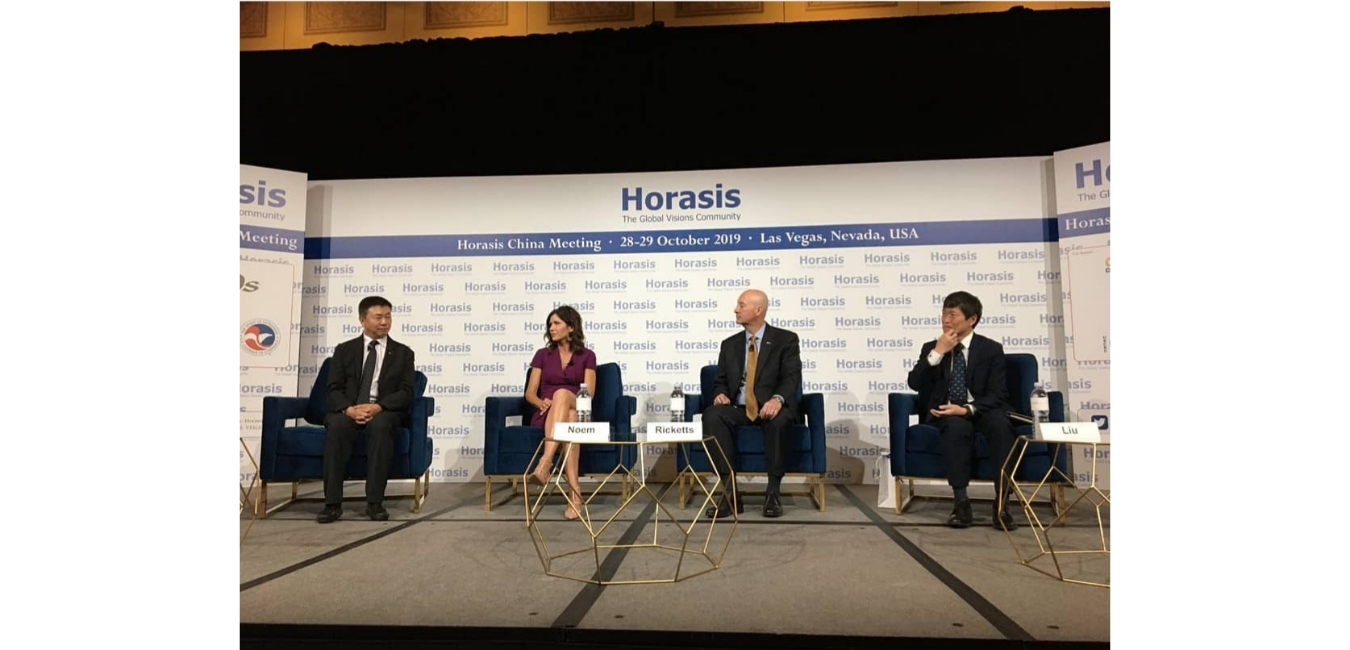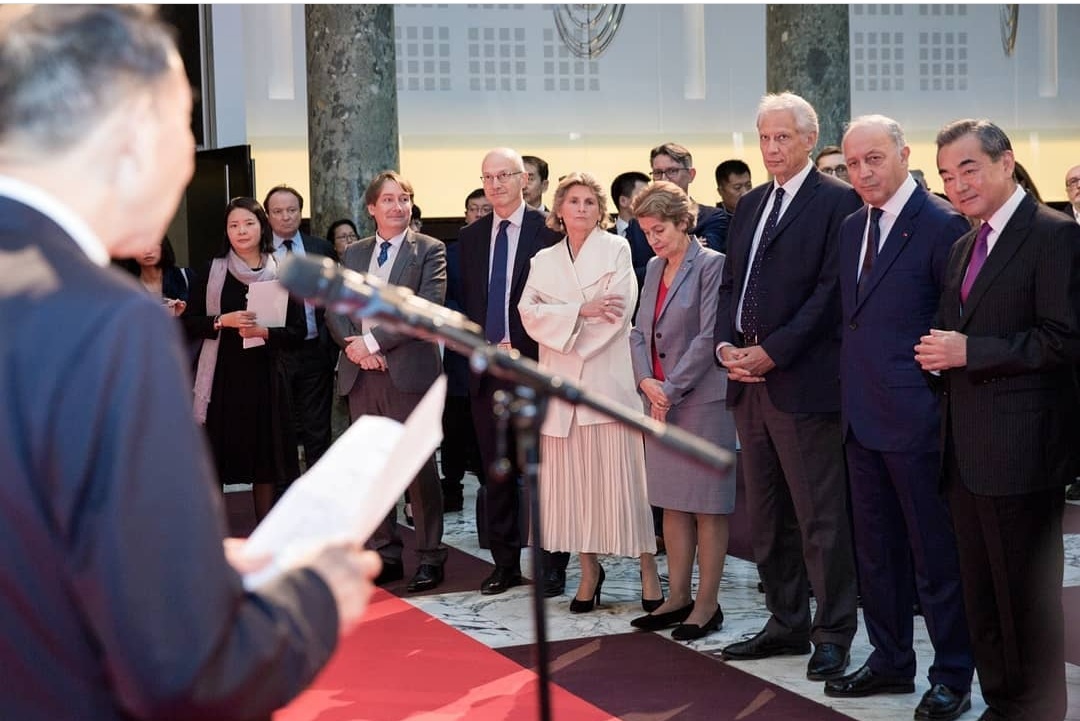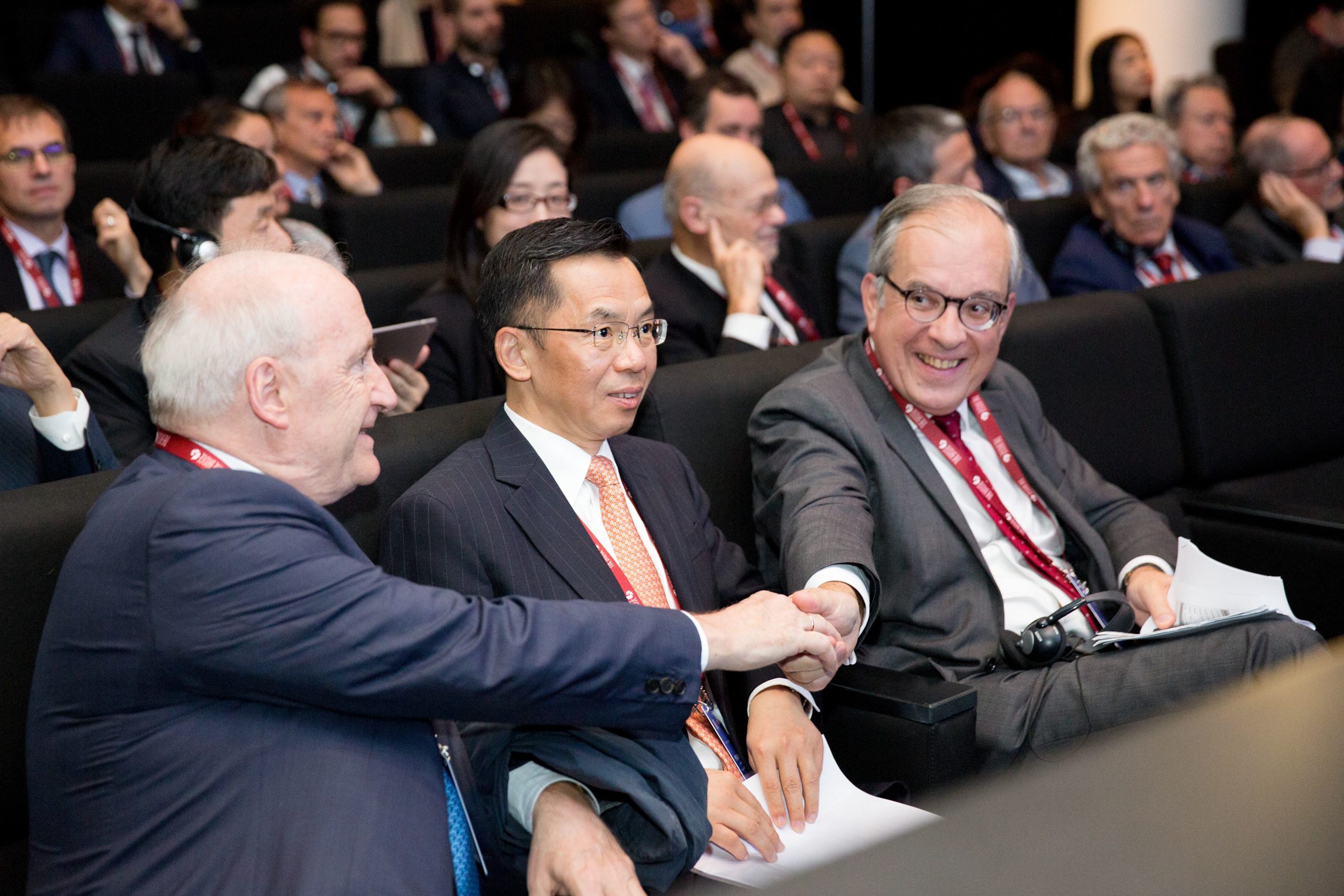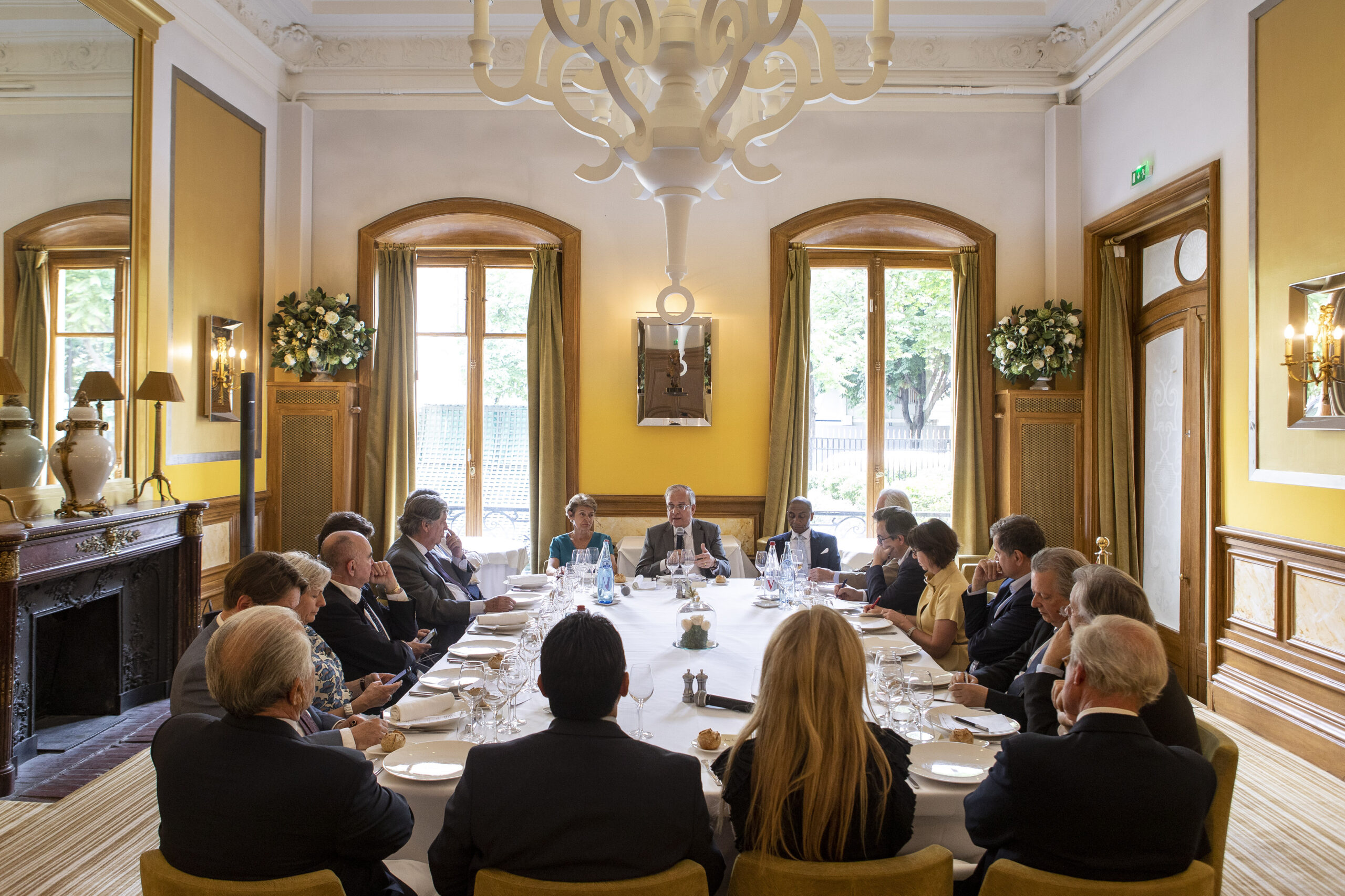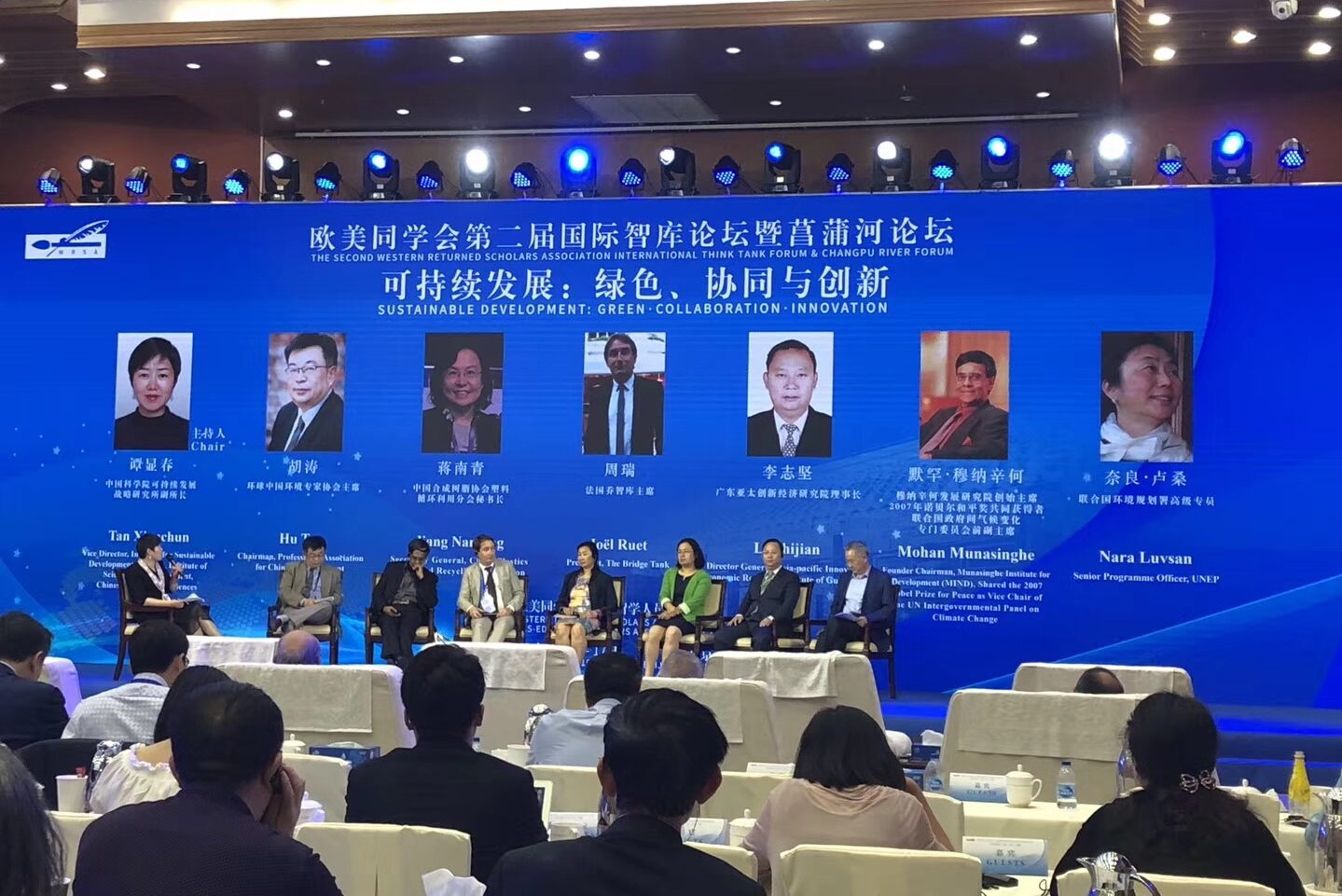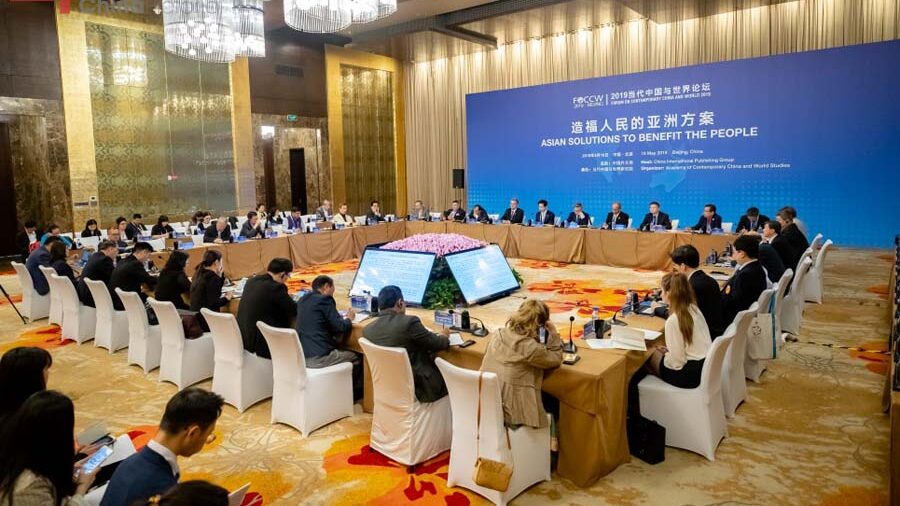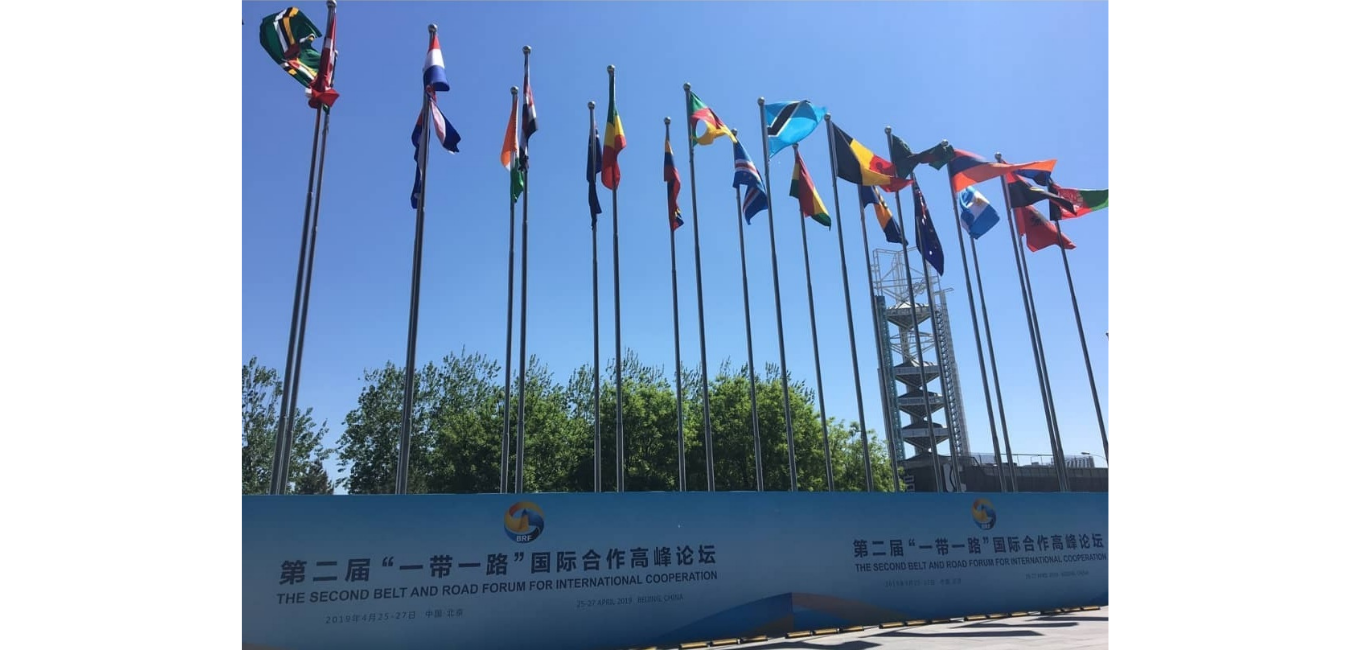Unlocking Finance: The Key Factor for Investment on Green Projects in Africa
A significant change in how investors approach green projects is underway. The fight against climate change requires and will require increases in the amount of capital being devoted to green projects. This underlines the importance of mobilizing financial actors from the private sector. Their awareness of this need and on the opportunities these investment give into re-defining the business, is already, for some of them, becoming a reality.
We now have the opportunity to move towards a “decarbonization“ of investment portfolios. For investment to match climate change mitigation goals, we will need concrete moves towards decarbonizing portfolios. The good news is that certain tools exist that can help make green projects more attractive to investors. This policy brief argues for renewed emphasis and action on these points to significantly boost investment. In other words, Africa is open for business.
The Bridge Tank contributes to the 2019 Horasis “China Meeting” in Las Vegas
On the 28th and 29th October 2019, the Horasis China Meeting took place in Las Vegas. One of the key parts of this event was a debate between Kristi Noem, Governor of South Dakota, and Pete Ricketts, Governor of Nebraska, on the US-China economic collaboration. Kristi Noem argued that, from an agricultural perspective, keeping many options was the best way for the US to succeed, allowing American families to purchase a large variety of goods. Pete Ricketts insisted that the rise of the middle class in China was a positive change, as it increased the average disposable income which allowed then the consumption of products such as bovine meat. Such a discussion was very interesting to follow, as it highlighted the differences between the point of view of American states involved in intense trade relations with China, and the position of Washington and Donald Trump.
Joël Ruet intervened in a panel entitled “What is next for China’s Belt and Road Initiative?”, which was chaired by Brendan Davis, Producer and Partner at International Troublemakers Incorporated. Among the other keynote speakers were Bo Inge Andersson, President of Yazaki North and Central America for Europe and Africa, Kai Xu, founder of the EverGreen Academy in China, and David Young, Chief Executive Officer of Oxford Analytica. In this panel, Joël Ruet argued that China’s work with development partners and multinational institutions would lead to an accelerated economic growth and poverty reduction.
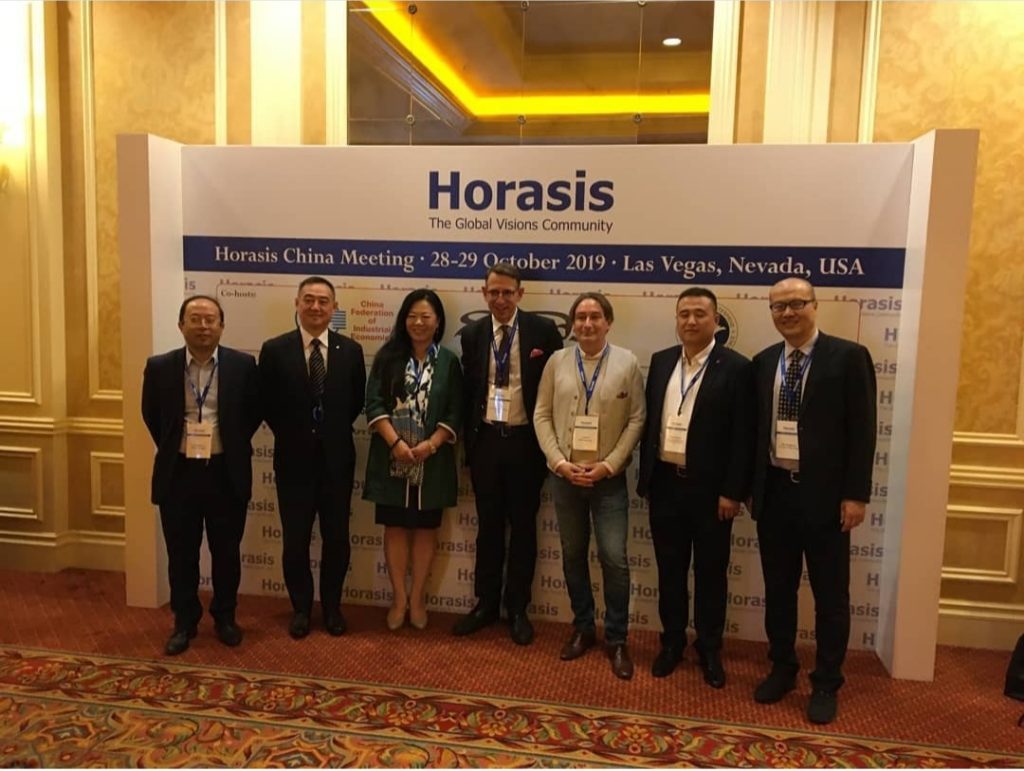
The Bridge Tank co-organizes the Sino-France Dialogue on Civilizations
On 22nd of October 2019, the Sino-French Dialogue on Civilisations, co-organised by the Bridge Tank and the China International Publishing Group, was host to three working panels focused on the French and Chinese cultures and global values. The discussions focussed on the intensification of bilateral human exchanges and on the definition of a civilisation based on equality, mutual learning, dialogue and inclusivity.
Wang Yi, Laurent Fabius, Jiang Jianguo and Dominique de Villepin inaugurated the Sino-French Dialogue on Civilisations. Wang Yi, Chinese Foreign Minister and State Councillor, called for a central place of equality, tolerance and cooperation within human civilisations. Laurent Fabius, former French Prime Minister and President of the Constitutional Council, highlighted that the Sino-French dialogue was a way to live together, especially given that the French and Chinese civilisations have in common the will for openness and a strong interest for balance. These common features should allow the Sino-French cooperation to defend multilateralism more efficiently than alone. Jang Jianguo, Director of the Chinese State Council Information Office and former deputy director of the Publicity Department of the Communist Party of China, highlighted that communication between the two civilisations, each with their own culture and wisdom, was the best way to achieve both French and Chinese dreams. Dominique de Villepin, former French Prime Minister, insisted on how important the human part of this dialogue of civilisations remained central in this context of a global crisis affecting political, economic and international model.
The speakers of the first panel were Xiang Yunju, executive vice-president of the China Literature and Art Foundation, Gérard Chesnel, former Minister-Councellor at the French Embassy to China and former French Ambassador to the Philippines, Luo Guoxiang, lecturer at the International Studies Institute of the Wuhan University, Deborah Furet, development director at the EHESS, Liu Ye, Chinese actor and knight of the French Order of Arts and Letters, Philippe Barret, French writer, and Han Yuhai, lecturer at the Chinese College of the Beijing University.
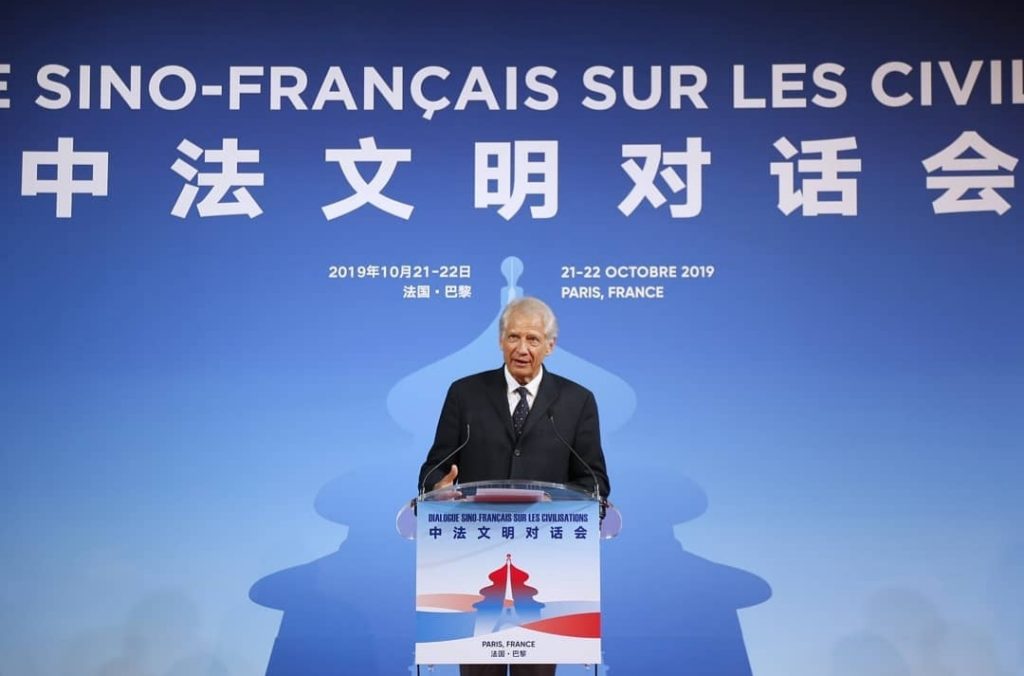
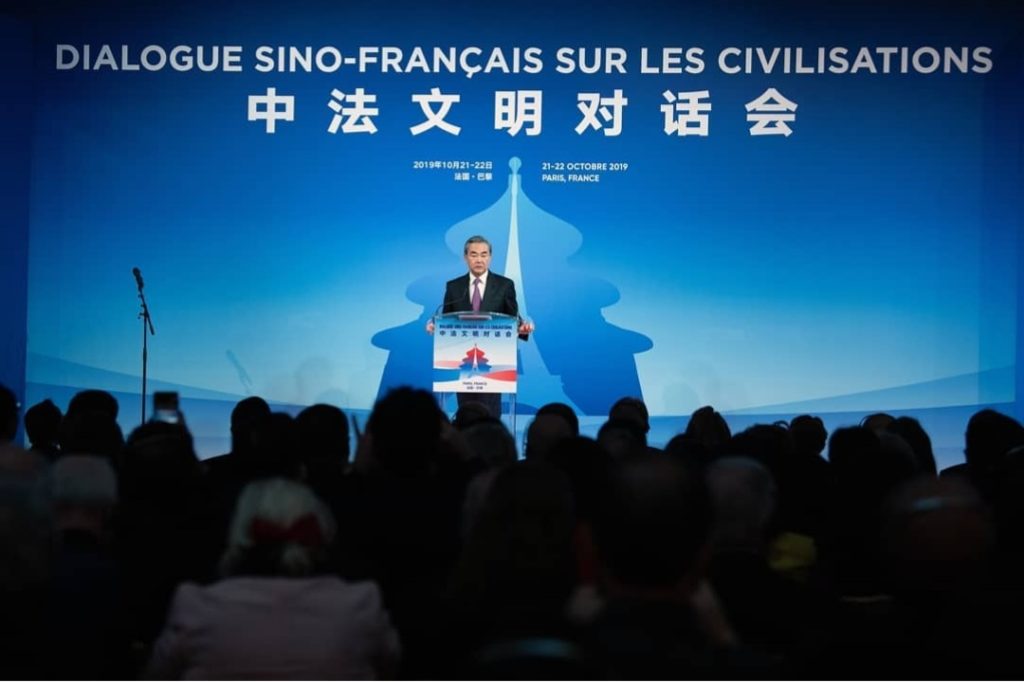
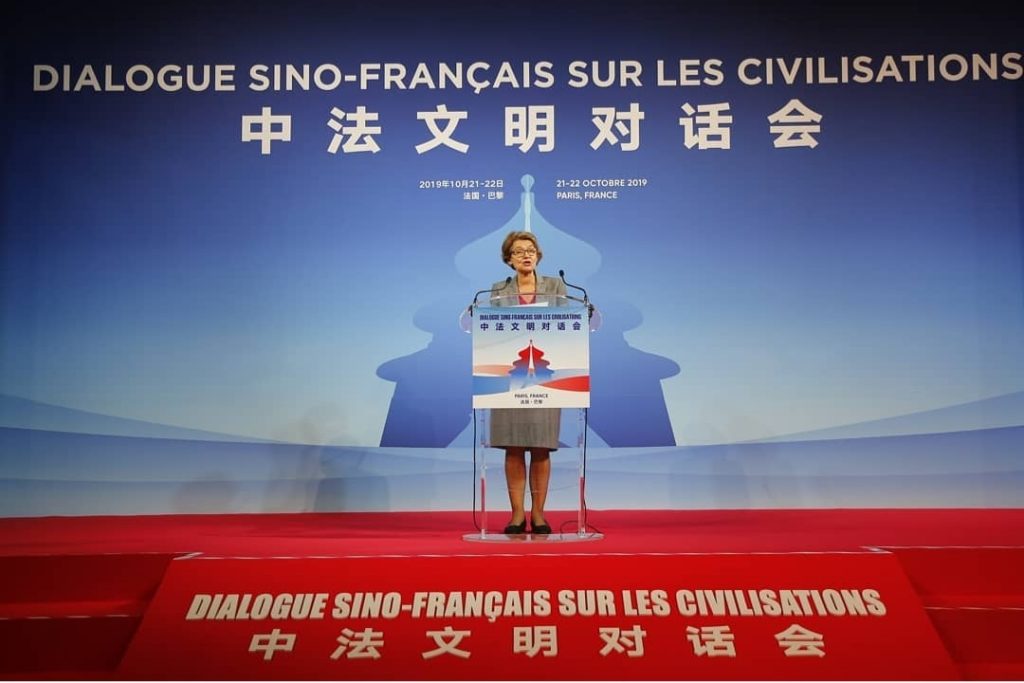
The panellists of the second session were Jean-Christophe Bas, Chair of the Dialogue of Civilisations Institute and former Director of Strategy and Development at the United Nations Alliance of Civilizations, Meng Man, lecturer at the History and Culture Institute of the Minzu University of China, Emmanuel Dupuy, President of the Prospective and Security in Europe Institute, Zhao Xiaoxing, assistant director and researcher at the Documentation Institute of the Dunhuang Academy, Alexandre Del Perugia, actor and director of the National Conservatoire of Circus and Mimes, and Shen Jian, President of the Chinese Association of research on the history of France and deputy director of the Academic Advisory Council of the Literature College of the Zhejiang University.
The third panel gathered Liu Shaowen, deputy director at the Research on the Cyberspace Institute of China, Emmanuel Lincot, lecturer at the Catholic Institute of Paris and expert in Chinese politics and history of art, Feng Ying, director of the Chinese National Ballet and knight of the French Order of Arts and Letters, Jean-François Di Meglio, President of Asia Centre, Yuan Min, CEO of Tencent, and François Quentin, former President of the administration council of Huawei Technologies France.
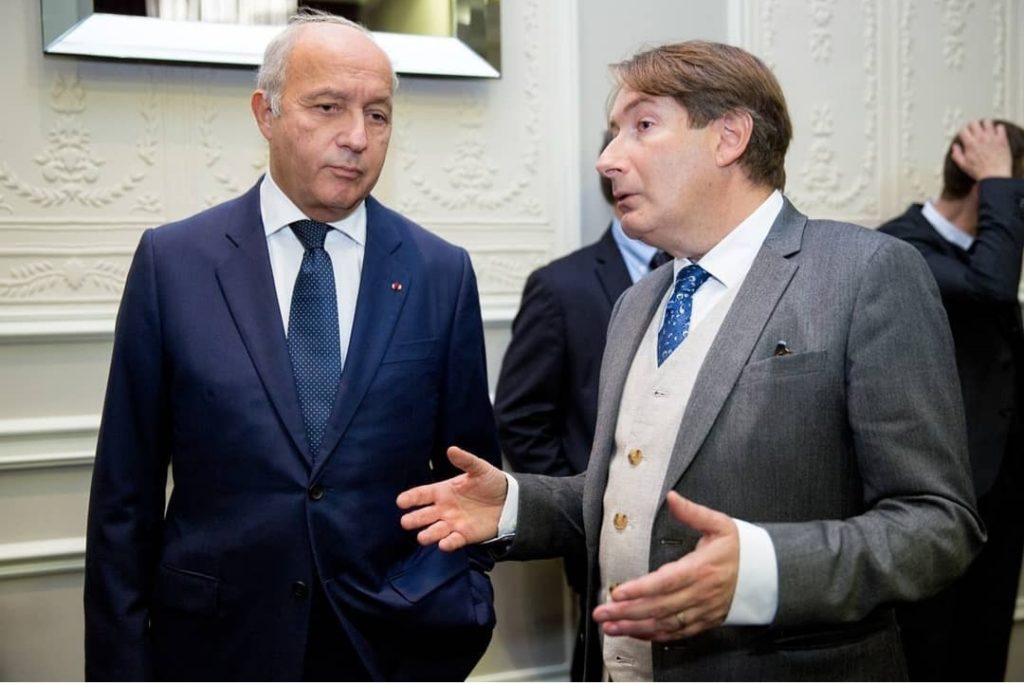
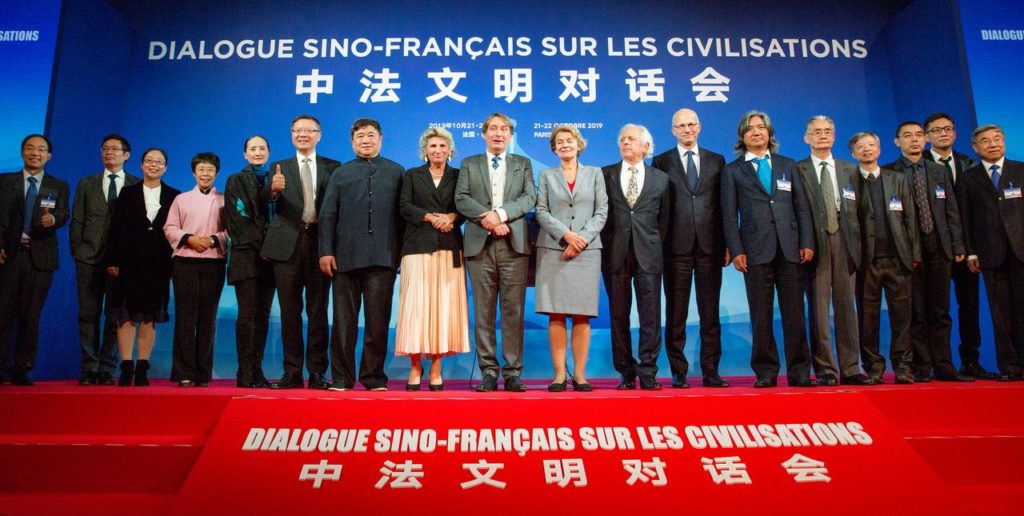
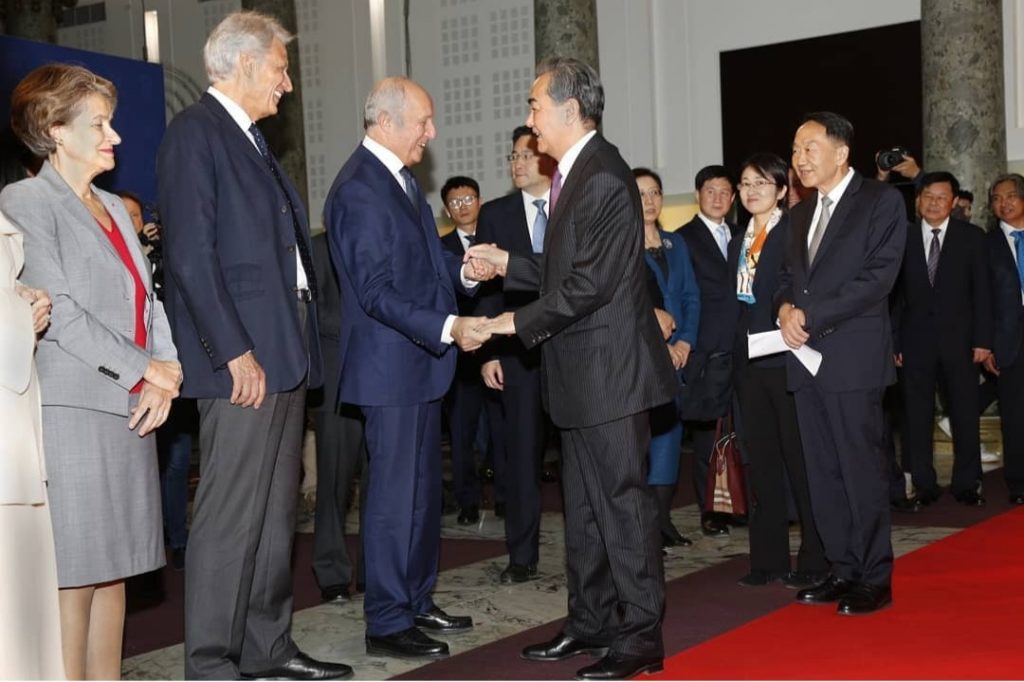
The Bridge Tank co-hosts the seminar: ‘China: Which questions for the future?’
The Bridge Tank co-organised with the Chinese Embassy in France a seminar on the 11th of October 2019, to commemorate the 40th anniversary of economic reforms and the China and the 55th anniversary of the implementation of French-Chinese diplomatic relations. This seminar took place in Brongniart Palace and gathered French and Chinese politicians and experts. This seminar was the occasion for many exchanges and debates, between the speakers and the public and was opened by Hubert Védrine, former French Minister of Foreign Affairs, Maurice Gourdault-Montagne, former Diplomatic Advisor to the French President, Secretary General of the Ministry of Foreign Affairs, former French Ambassador to China, Lu Shaye, Chinese Ambassador to France, and Joël Ruet, President of The Bridge Tank.

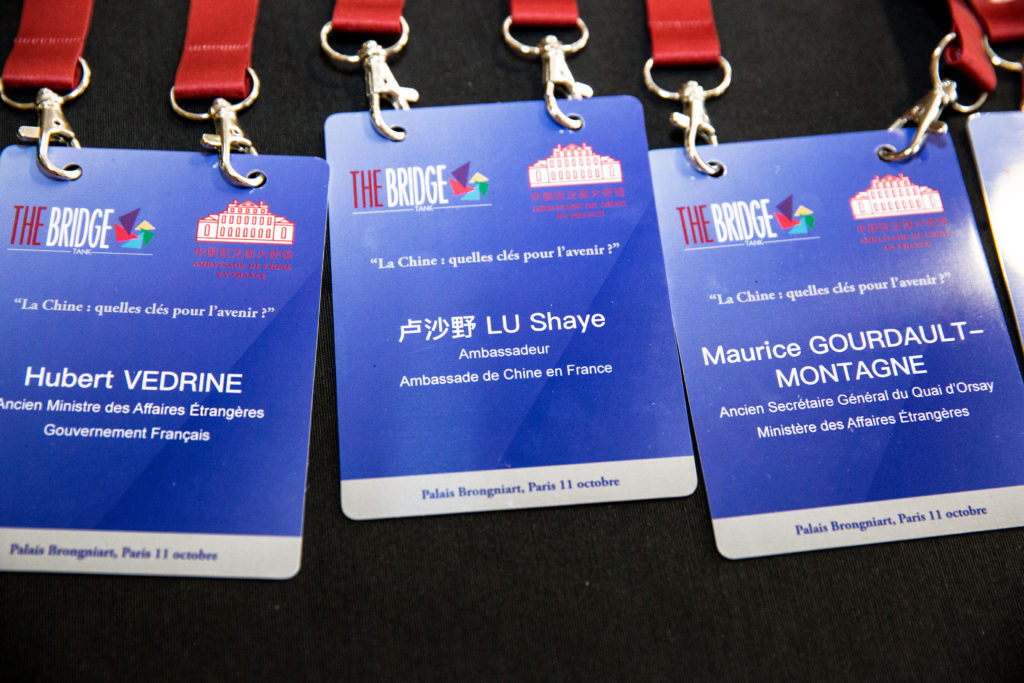

Maurice Gourdault-Montagne, Cheng Guoqiang, lecturer at the Tongji University of Shanghai, Emmanuel Hache, researcher at the French Institute of Petroleum, Jean-Claude Beaujour, Vice President of France-Amériques et board member of The Bridge Tank, and Jean-François Di Meglio, President of Asia-Centre at Sciences Po Paris, were keynote speakers of the first session of The Bridge Tank’s Seminar. Maurice Gourdalt-Montagne insisted on the necessity China has to confirm its place in the international system, notably through Eurasian agreements and structures. Jean-Claude Beaujour argued that Sino-European cooperation was key to the European Union, especially in the context of a Sino-American trade war and distrust. Jean-François Di Meglio explained how imortant it is for China to trust more than the international system and the benefits it could obtain through it.
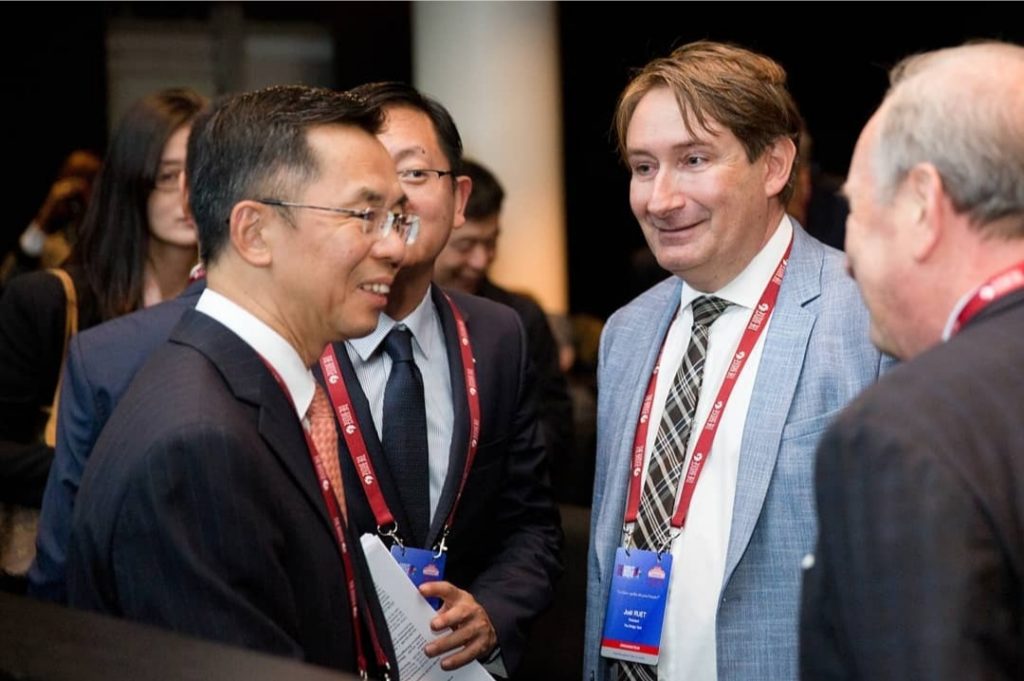
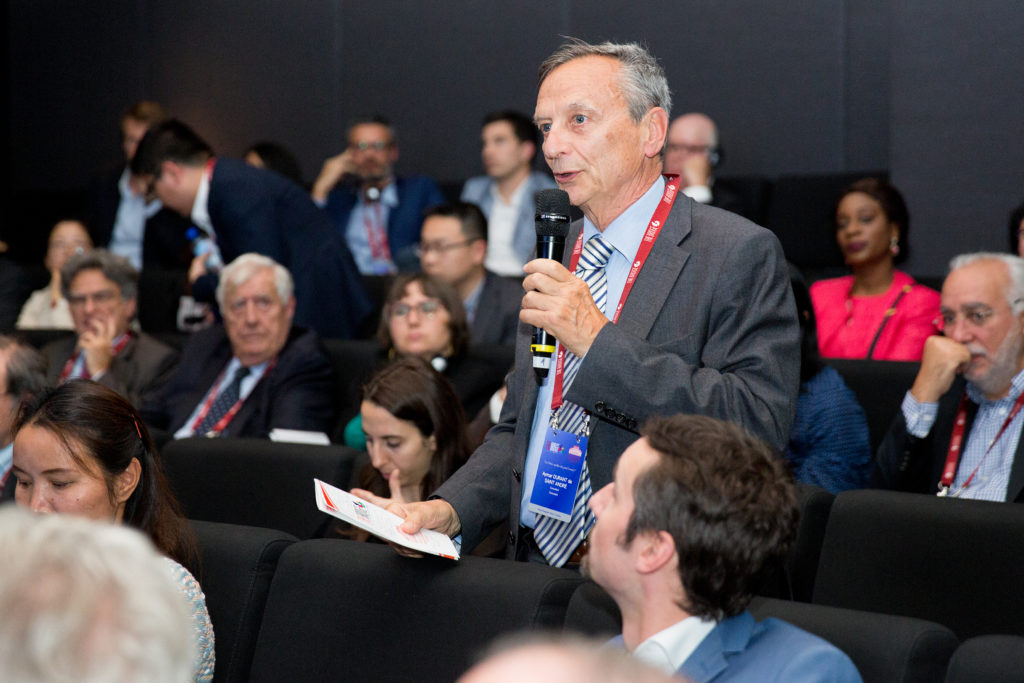
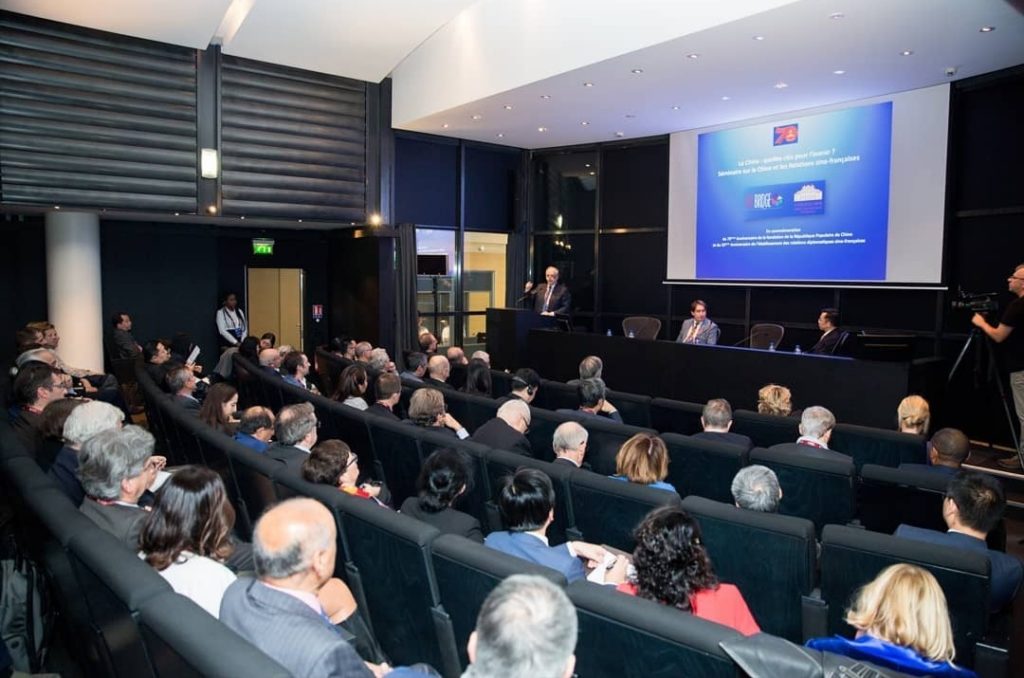
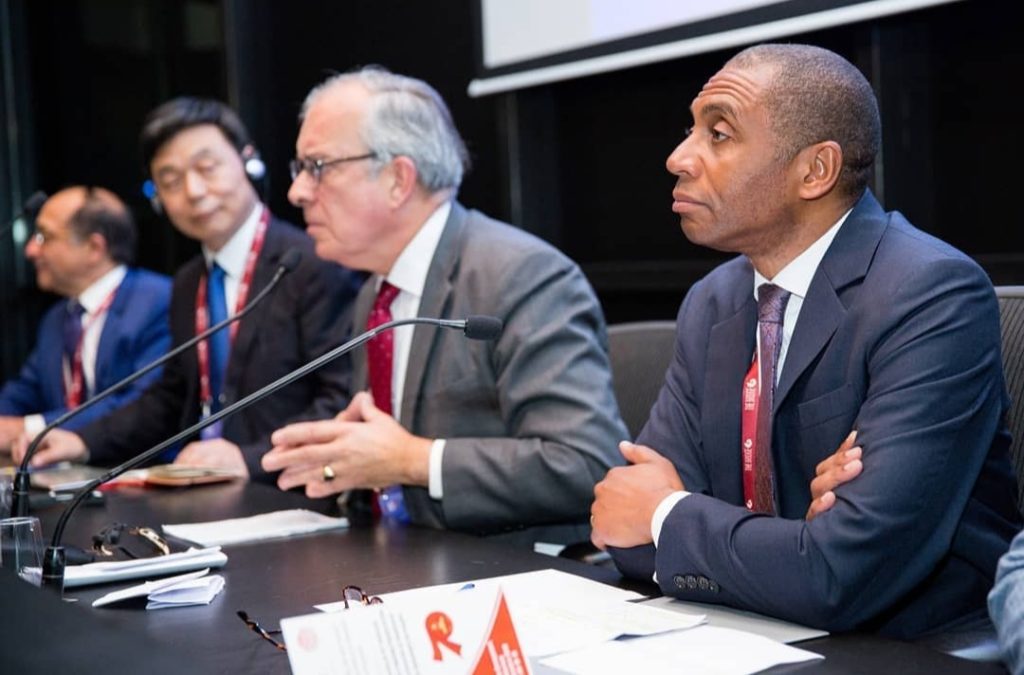
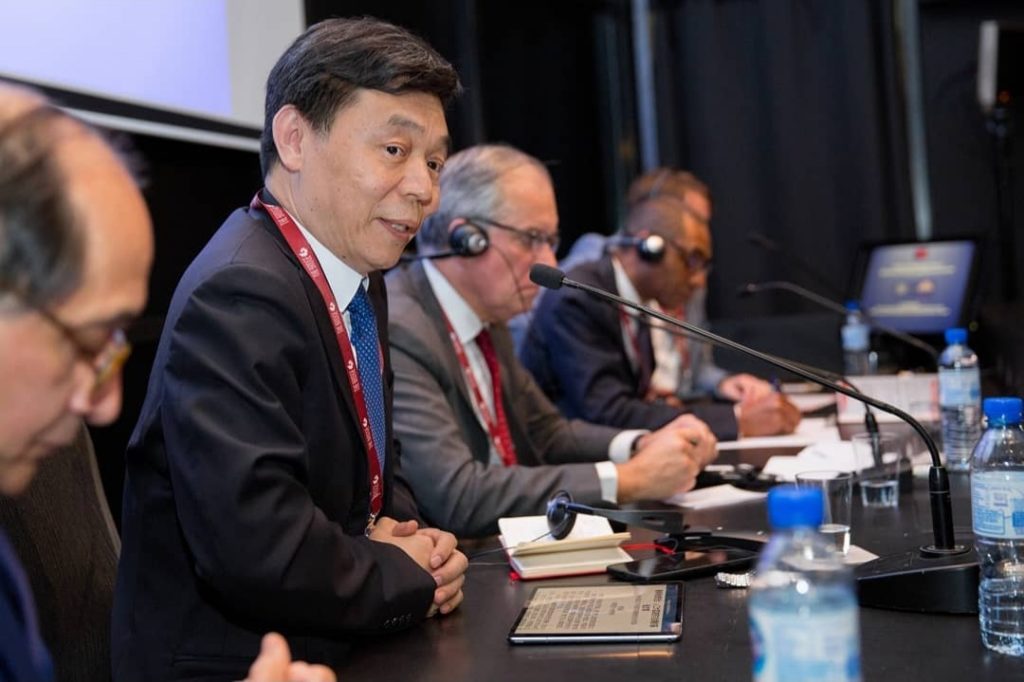
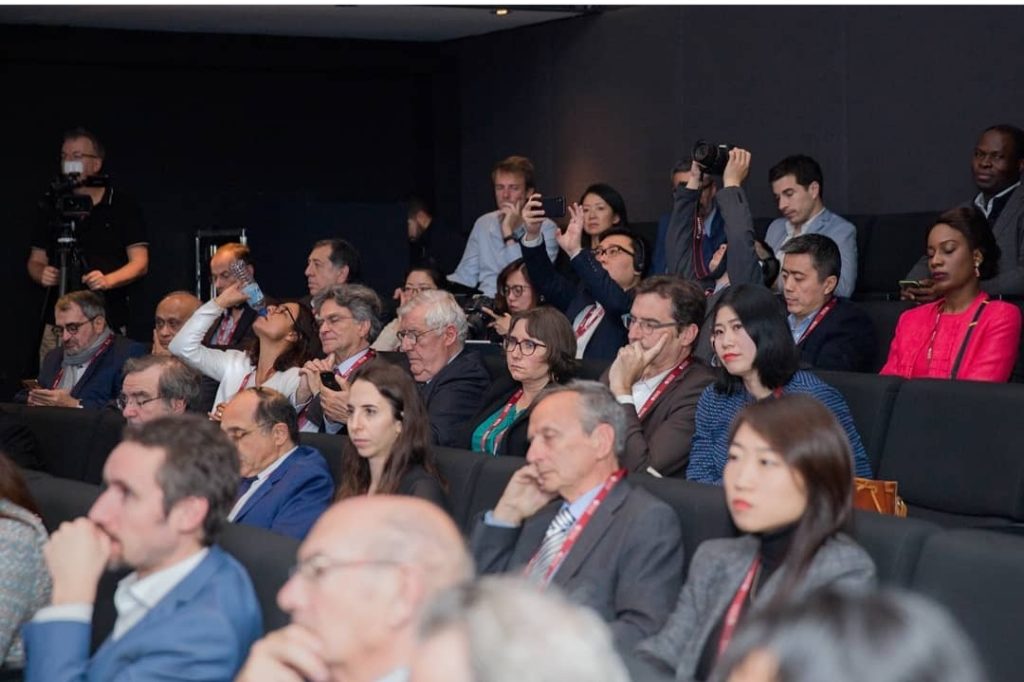
The General Eric de la Maisonneuve, President of the Strategy Society, Zhao Chen, Director of the European Diplomacy Institute of the Chinese Academy of Social Sciences, Justin Vaïsse, Director General of the Paris Peace Forum, Deng Haochen, lecturer in Political Sciences at the Fudan University of Shanghai, and Emmanuel Dupuy, chairman of the Prospective and Security in Europe Institute, were keynote speakers of the second session of The Bridge Tank’s seminar: “China: which questions for the future?” General Eric de la Maisonneuve argued that more Sino-French cooperation is a key element for Africa’s economic development. Justin Vaïsse argued that China needed to be a key actor in the fight against climate change and biodiversity loss, especially regarding its ability to gather states into a community capable of taking important mesures. Emmanuel Dupuy added that the Sino-French cooperation must be the starting point of the rebuilding of the international system; as well as the reinforcement of regionalism in international discussion.
A press conference with Lu Shaye was held following The Bridge Tank’s seminar, quoted notably in CGTN’s “60’ Le Grand Journal’.
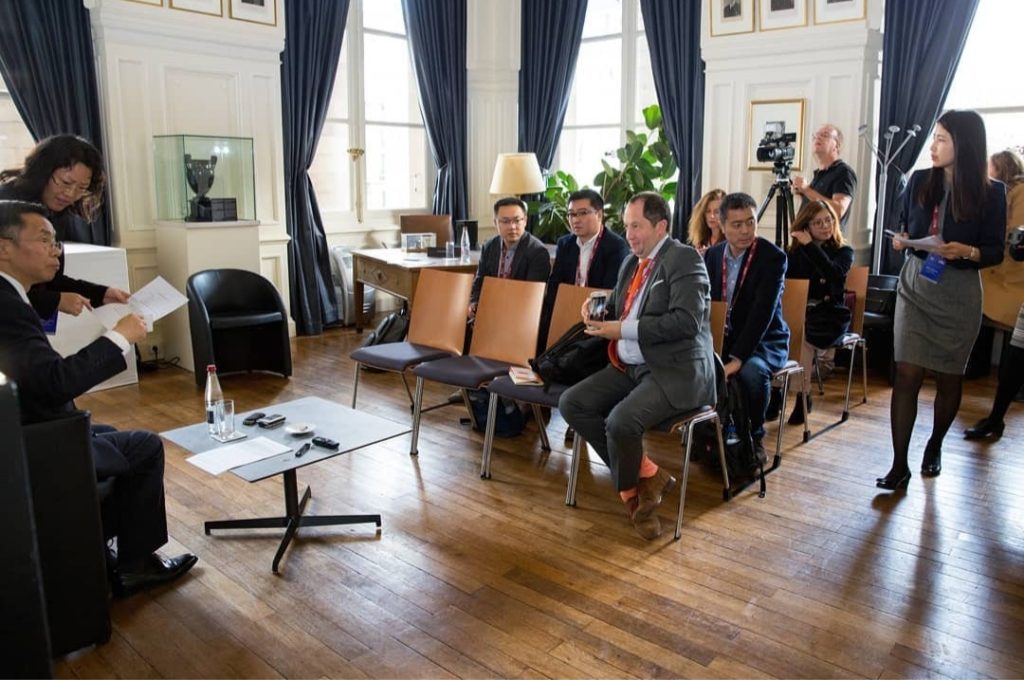
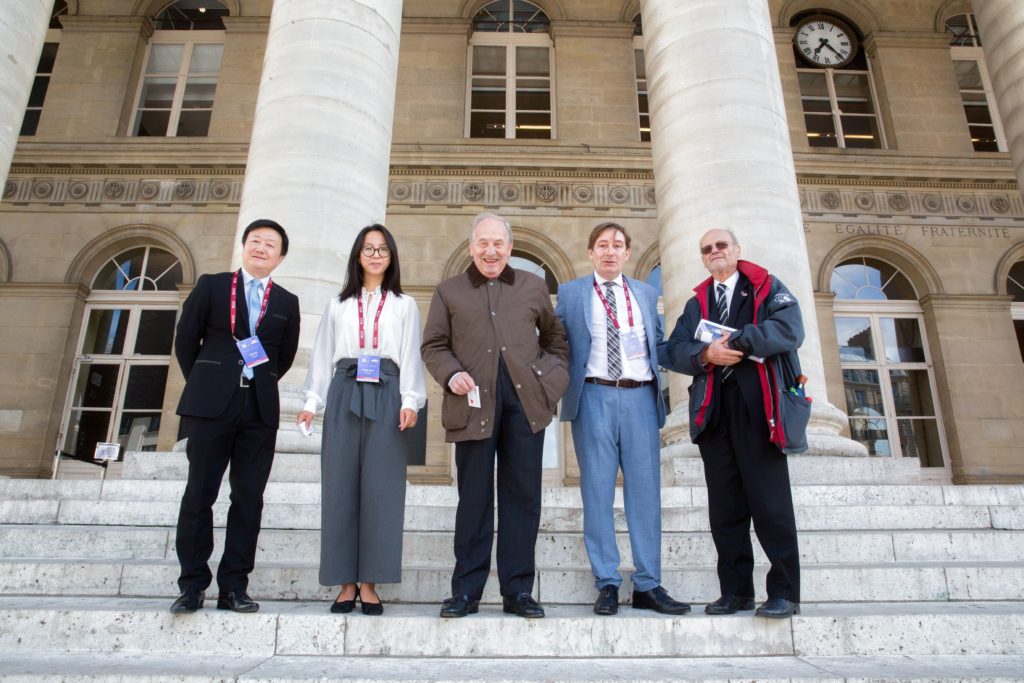
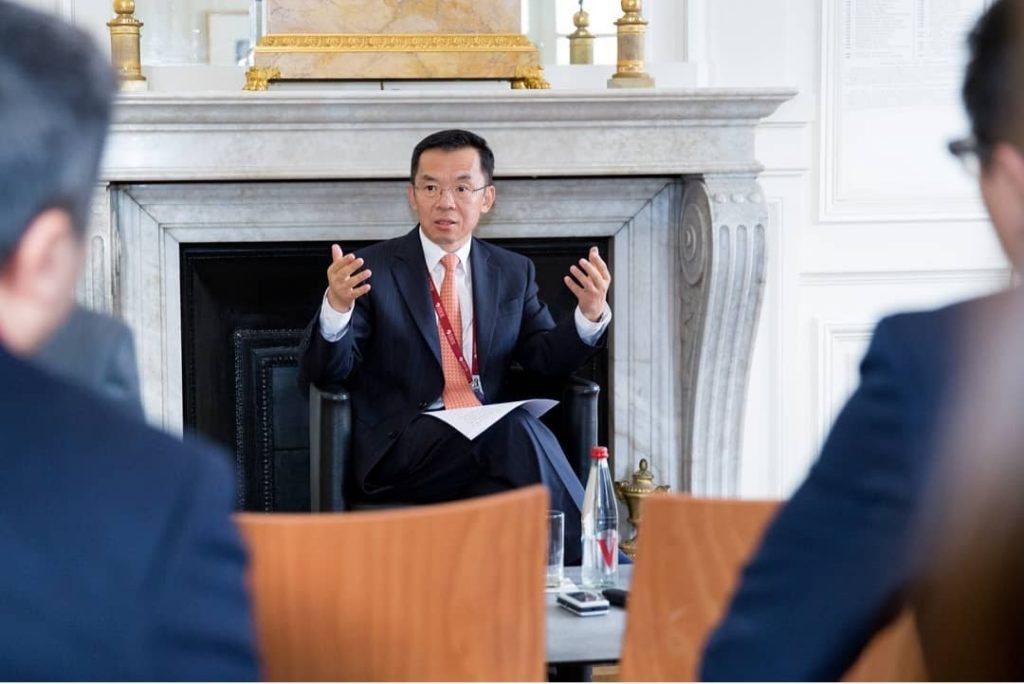
A working lunch on international affairs around Maurice Gourdault-Montagne
On June 19, 2019, France-Amériques and The Bridge Tank, represented by Jean-Claude Beaujour and Joël Ruet, co-organised a working lunch on international current affairs around Maurice Gourdault-Montagne, Secretary General of the French Ministry of Foreign Affairs, as part of the “Transatlantic Talks” series.
Eric de Rothschild, Irina Bokova, Claire Martin, Anne-Sophie Bradelle, who was about to join the Elysée Palace team, and Pierre Haski, renowned journalist and President of Reporters without borders, were among the special guests invited by The Bridge Tank to the working lunch.
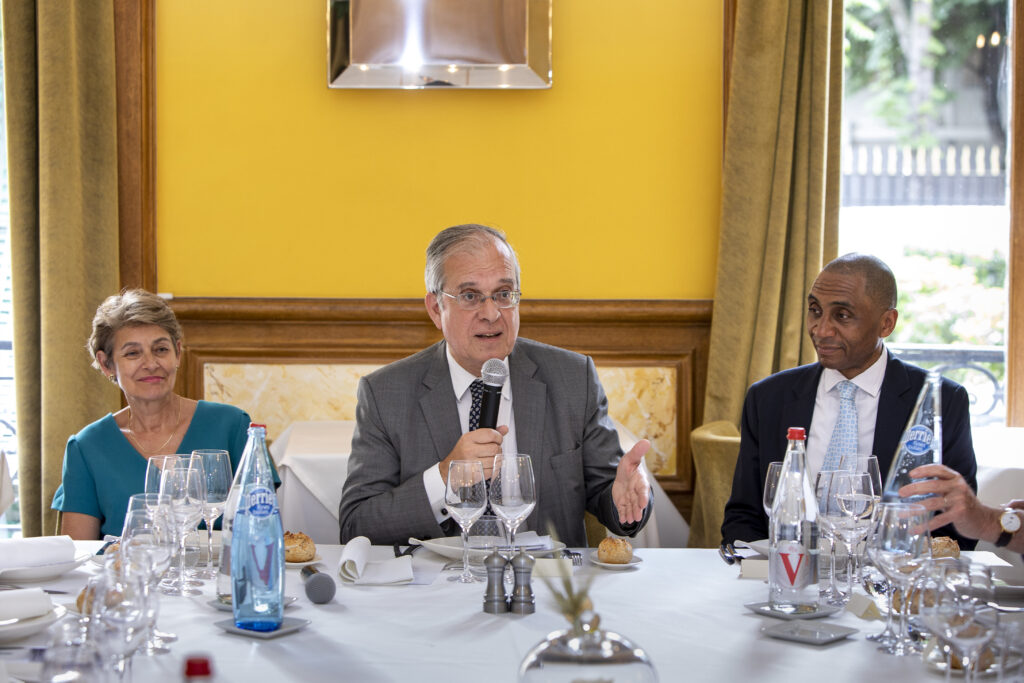
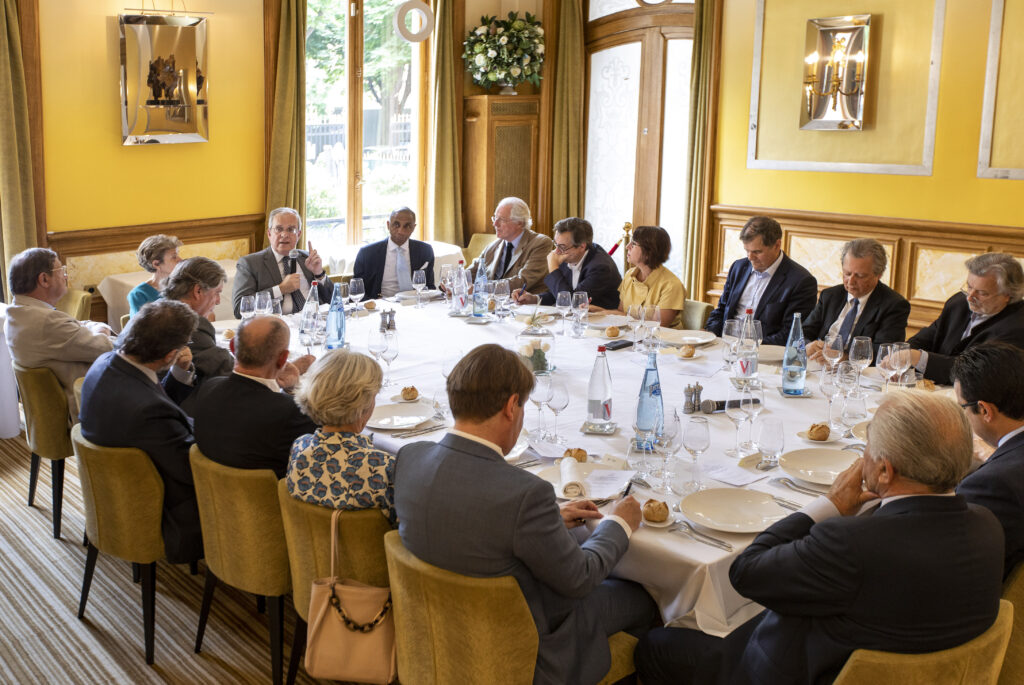
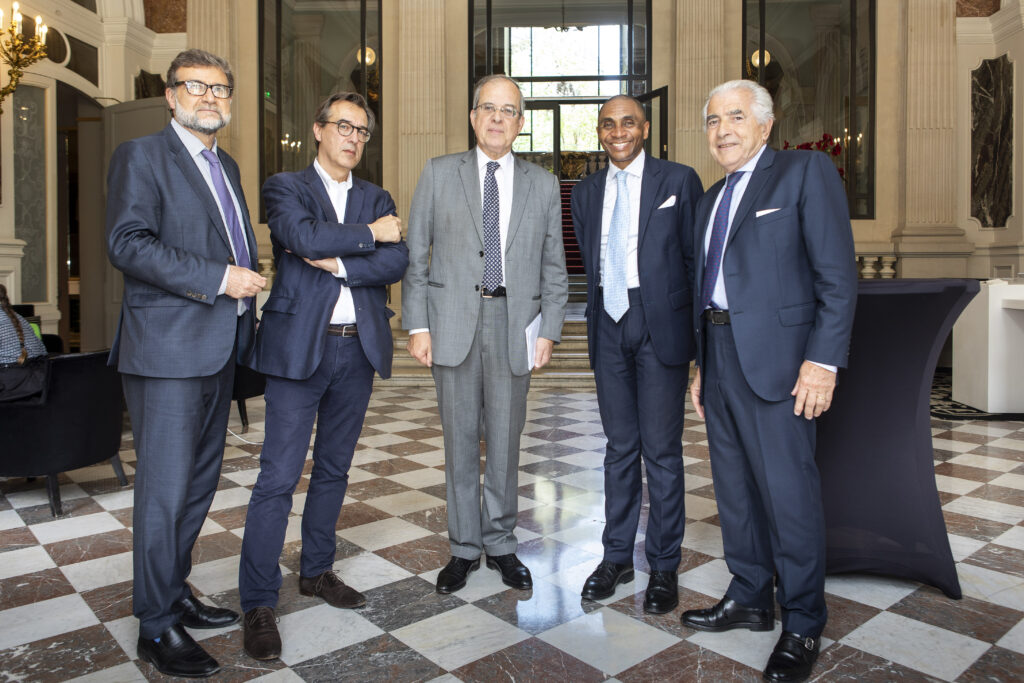
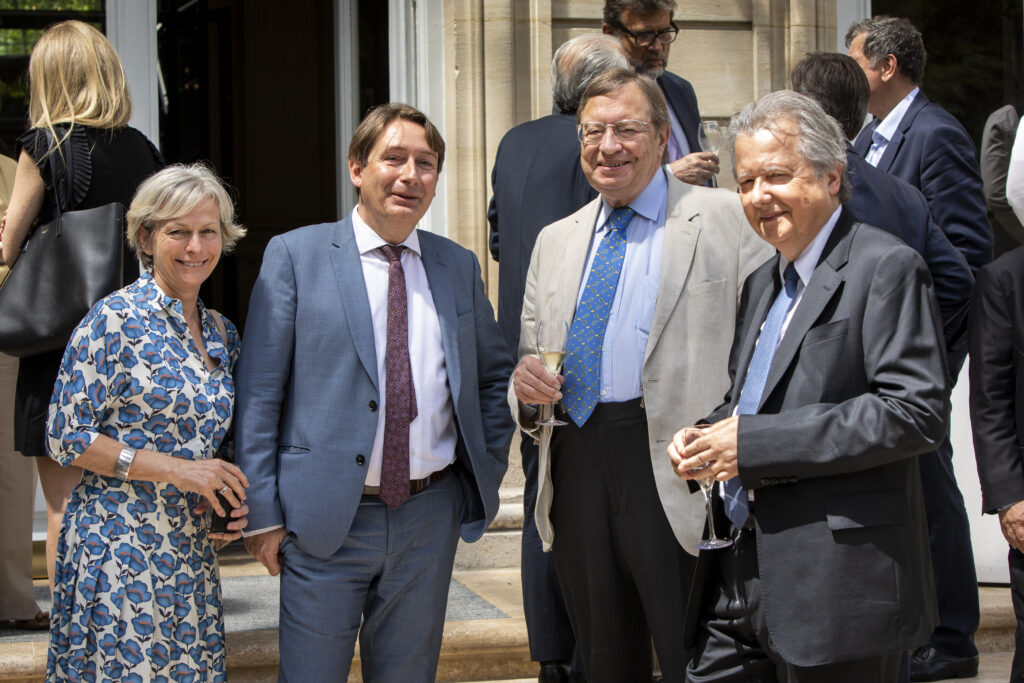
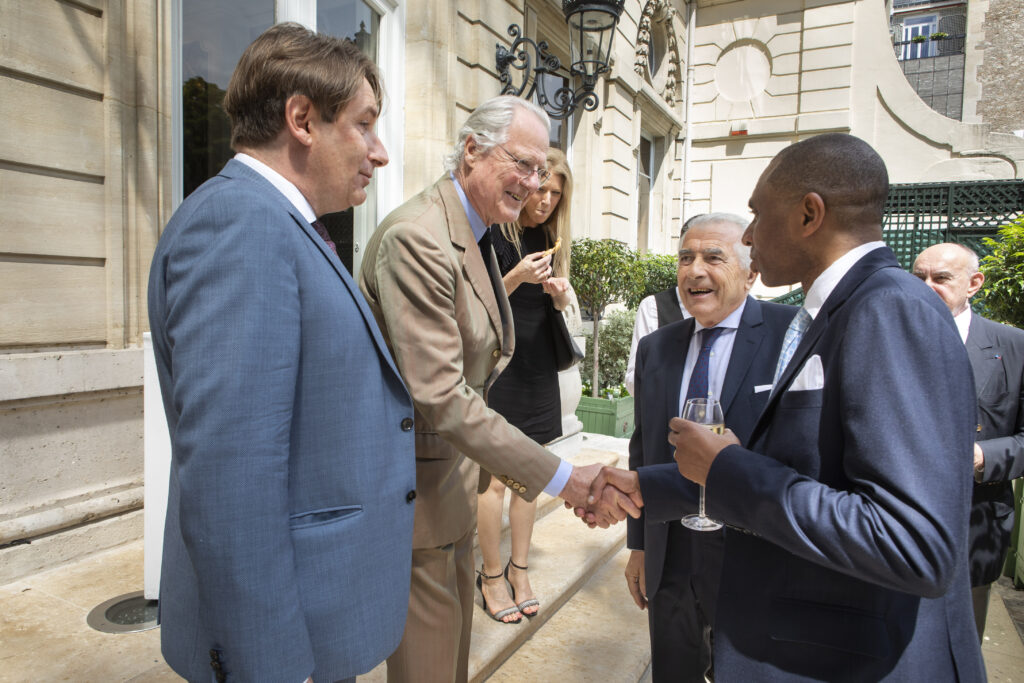
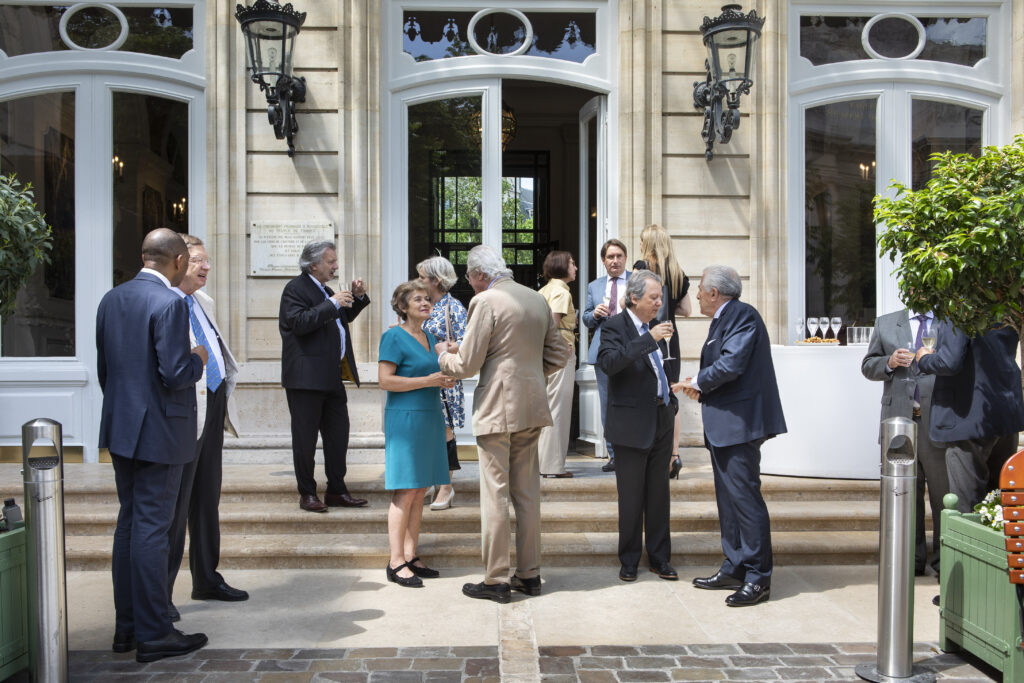
Discussing Sustainable Development & Innovation at the Western Returned Scholar Association’s annual meeting
From May 15-17, 2019, the Western Returned Scholars Association hosted a side conference to the Conference on Dialogue of Asian Civilizations titled “Sustainable Development: Green Collaboration and Innovation”.
The keynote speakers of this conference included The Bridge Tank’s president Joël Ruet, Mohan Munasinghe, former Vice-Chair of the Intergovernmental Panel on Climate Change and co-recipient of the 2007 Nobel Peace Prize, Nara Luvsan, Senior Programme Officer at the United Nations Environment Programme, and Li Zhijian, former Chairman of the Academic Committee of the School of Information Science and Technology of the Tsinghua University.
Joël Ruet also intervened in a panel discussion where he addressed the considerable change that the opportunity of direct high-speed trains between China and Europe would represent for passengers and human exchanges.
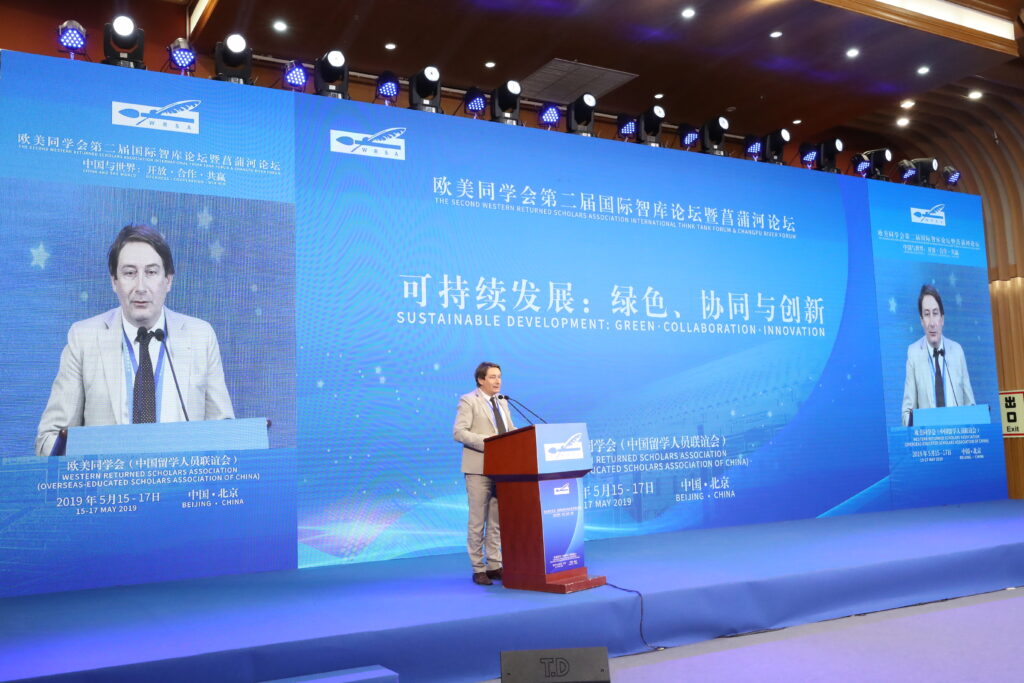
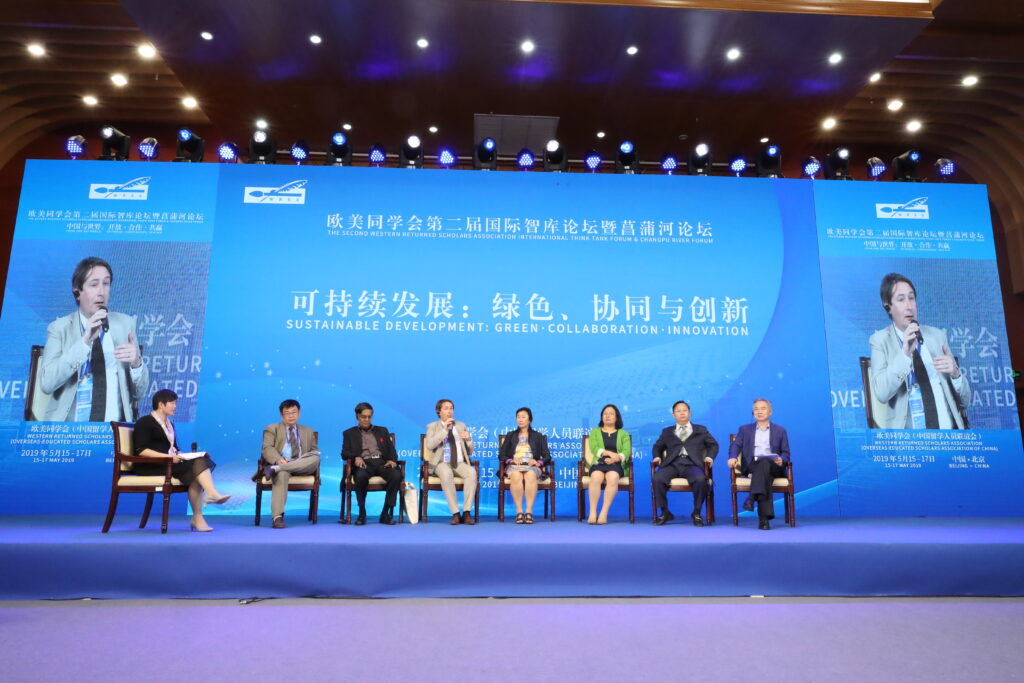
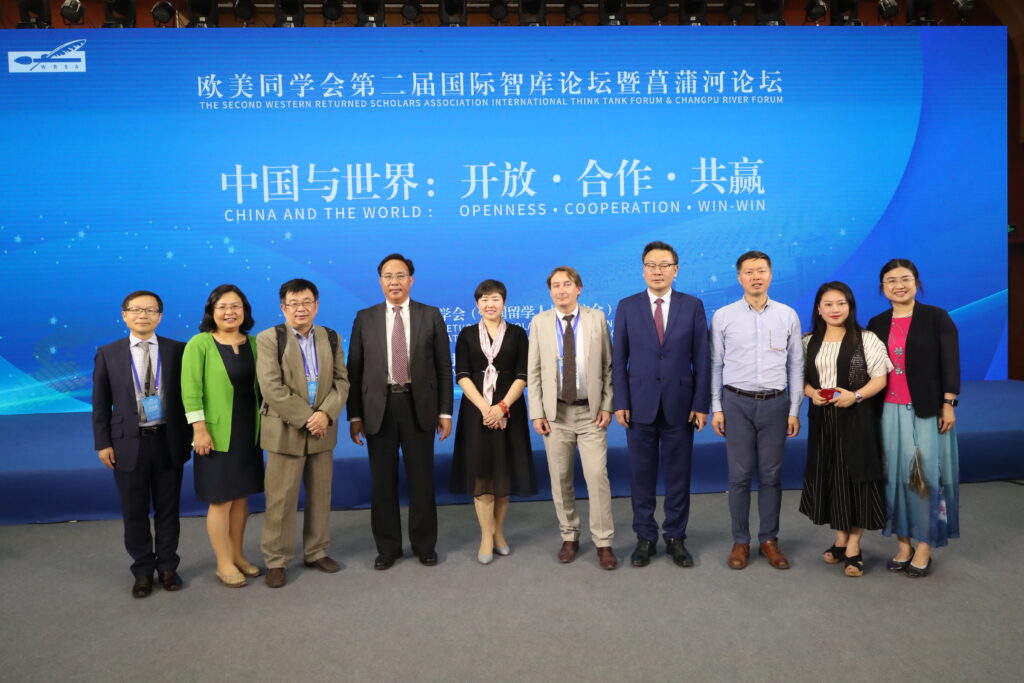
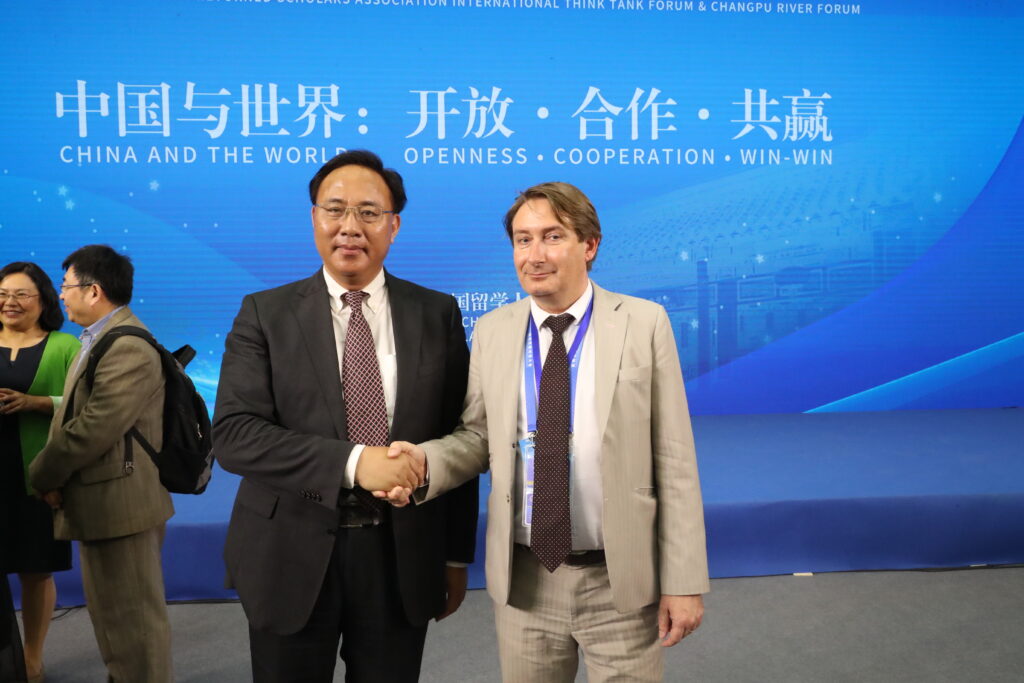
The Bridge Tank participates in the Conference on Dialogue of Asian Civilisations
The Conference on Dialogue of Asian Civilizations took place on May 15, 2019 in Beijing. For this event, Chinese President Xi Jinping invited heads of state and government and high representatives from around the world. The Bridge Tank was invited to attend this event and to give a speech at the official Intellectual Forum of the Conference gathering prominent thought leaders.
The conference was inaugurated by Xi Jinping in an opening ceremony which took place at Beijing National Stadium.
During the Official Economic Conference organised as part of this forum, Joël Ruet, Chairman of The Bridge Tank was a keynote speaker in a session titled “Asian solutions to benefit the people.” The roundtable event was chaired by Wang Xiaohui, Editor-in-chief of the China Internet Information Centre. Among the other keynote speakers of this session were Li Daokui, Dean of the Institute for the Chinese Economic Practice and Thinking at the Tsinghua University, Hu Zhijian, President of the Chinese Academy of Science and Technology for Development, and Nakajima Atsushi, Chairman of the Research Institute of Economy, Trade and Industry.
During this discussion, Joël Ruet advocated for a « learning state » between Japan, China and India for technology dissemination and exchanged with the other panellists on the massification of green technologies in China.
During the official gala dinner, The Bridge Tank’s chairman also had the opportunity to exchange with Chinese Vice-Minister of Education Du Zhanyuan. They were both at the official table with Shaukat Aziz, former Prime Minister of Pakistan and Yasushi Akashi, former United Nations Under-Secretary-General for Humanitarian Affairs and Emergency Relief Coordinator.
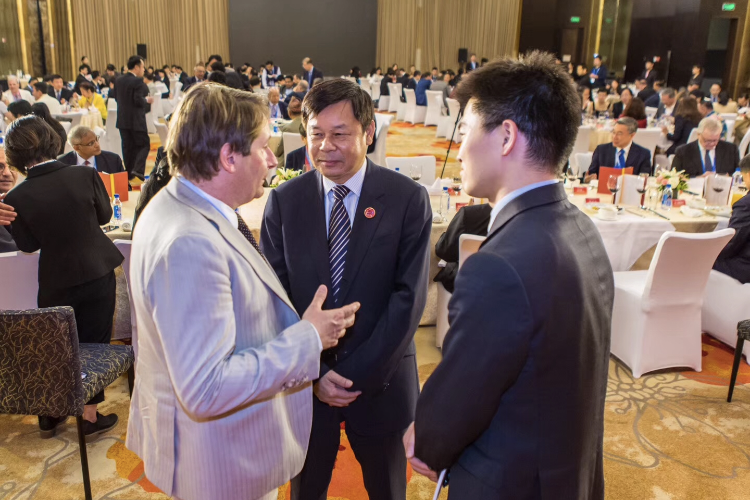
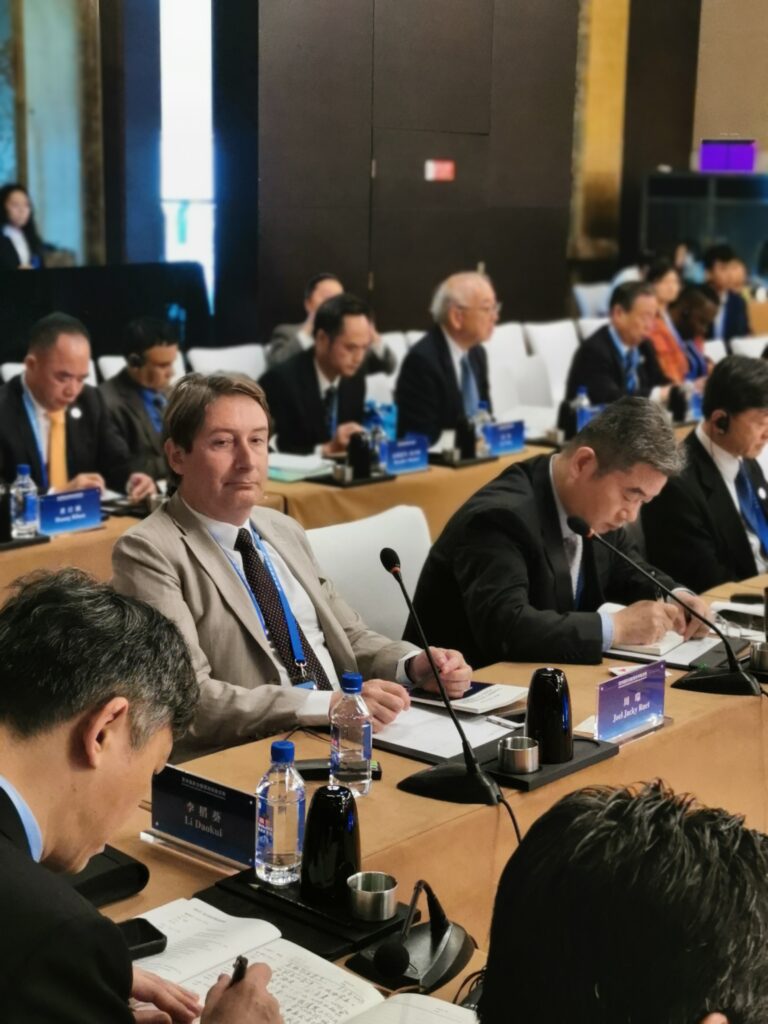
The Bridge Tank participates in the Second Belt and Road Forum for International Cooperation
The Second Belt and Road Forum for International Cooperation was held in Beijing between the 25th and the 27th of April 2019 under XI Jinping’s presidency. This event gathered 900 select CEOs and economic leaders from companies, governments and business organisations from 88 countries that joined the Belt and Road Initiative. The SASAC’s (State-owned Assets Supervision and Administration Commission) chairman, Xiao Yaqing was one of the keynote speakers. He argued that the inclusion of state-owned enterprises to the Belt and Road construction speeds up the globalisation process and drives the economic growth along the countries involved in the initiative. These enterprises undertook high quality pilot projects with high standards by meeting the demands for local development so as to achieve mutuel benefits and win-win development. As this event ended, a total of over 3,120 Belt and Road initiatives and ideas for further development in social and environmental sustainability had been gathered with central SOEs.
Joël Ruet, chairman of The Bridge Tank, as well as El Hadj Kasse, Minister-Counsellor to the President of Senegal and member of The Bridge Tank’s board, attended this forum. Memorandums of Understanding were signed with the governments of Equatorial Guinea, Liberia, Luxembourg, Jamaica, Peru, Italy, Barbados, Cyprus and Yemen. Cooperation plans or action were also signed between the Chinese government and the governments of Serbia, Djibouti, Mongolia, Mozambique, Ethiopia, Papua New Guinea and the African Union, the United Nations Human Settlements Programme and the United Nations Economic Commission for Africa. The Chinese government notably made the commitment to implement facilitation arrangements for border entry and exit the Belt and Road, as well to develop Silk Road theme bonds to facilitate bond market financing by domestic and foreign entities to support the initiative. A cooperation initiative on the Silk Road of Innovation was also announced by the Chinese Ministry of Science and Technology, and a Debt Sustainability Framework was published by the Chinese Ministry of Finance.
On the 24th of April 2019, The Belt and Road Studies Network, the initiative official’s think tank, was launched during its first annual meeting. This event was one of the official side events of The Belt and Road Initiative Summit. The Bridge Tank, as a co-founding member, attended this launch. Two of the keynote speakers at this event were Wang Xiaohui, Executive Deputy Head of the Publicity Department of the CPC Central Committee and President of the Council of China Top Think Tanks, and Justin Yifu Lin, former Chief Economist and Senior Vice-President of the World Bank and researcher at the Peking University.
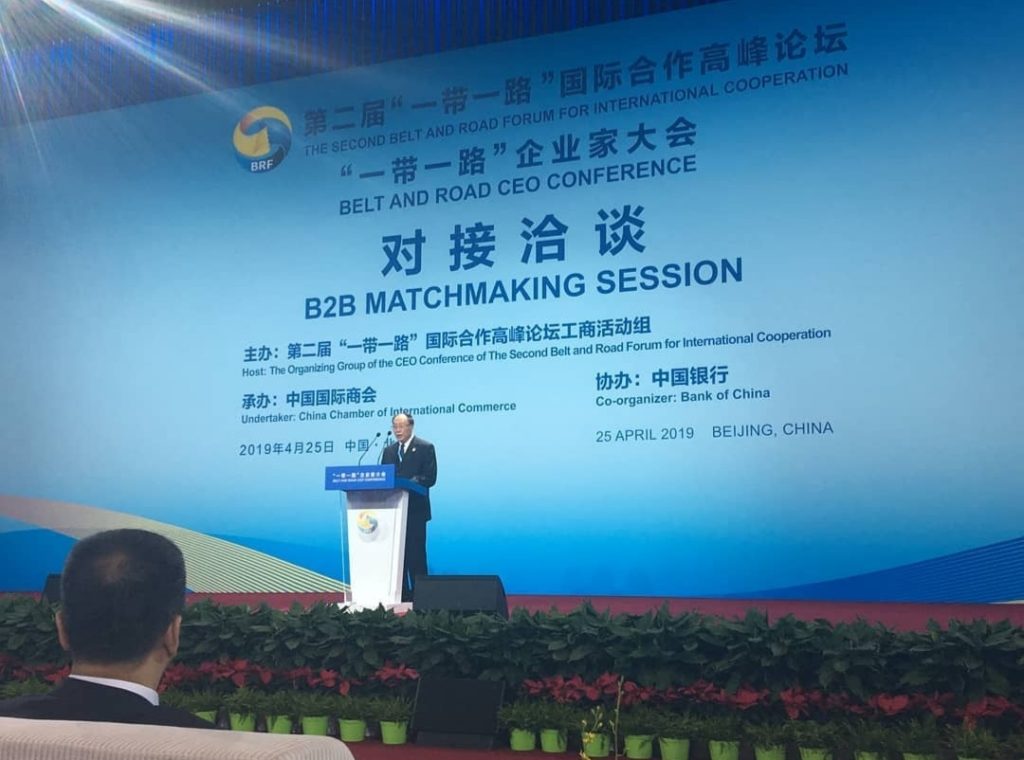
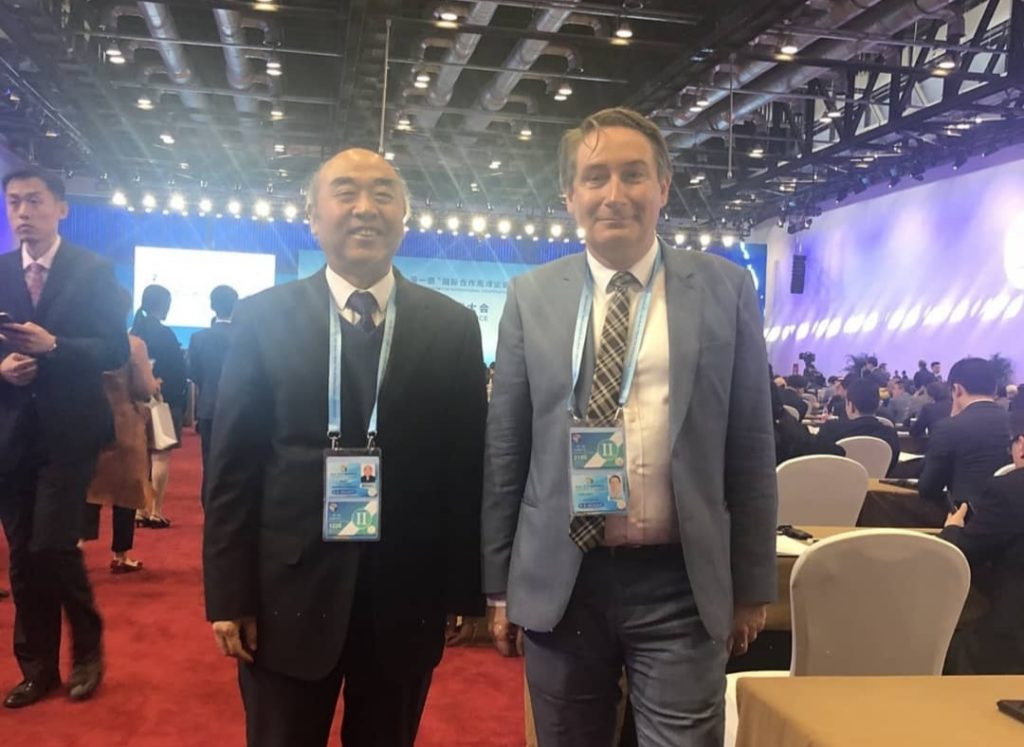
“Modi will be judged on what he was able to deliver”, Joël Ruet analyses the 2020 Indian elections on France24
In the context of the 2020 Indian elections, Joël Ruet discusses the chances of Narendra Modi’s re-election on French television channel France24.
Watch his intervention here.



